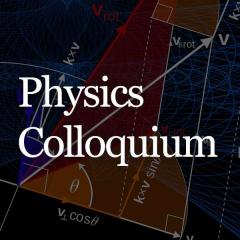Dr Ivan Kassal "Simulating Chemistry and Materials Science on Quantum Computers" 24/05/2019 11:00am
This Friday, May 24th, The UQ Physics Colloquium is hosting Dr. Ivan Kassal, from the University of Sydney. Dr. Kassal will talk about advantages of quantum computers in solving chemistry problems faster than classical computers. He will discuss potential applications of quantum chemistry and share his research that uses trapped ions quantum computers.
The talk will be given at 11 am in Parnell (07) Rm 222.
Everyone is welcome to join.
Abstract: The chief problem of computational chemistry and materials science is that the necessary computational requirements grow rapidly with the size of the system being simulated. This difficulty arises because of the cost of representing the full quantum-mechanical motion of electrons and nuclei on conventional computers. On a quantum computer, this representation can be carried out efficiently, allowing quantum computers to solve chemical problems much faster than conventional computers and without sometimes-dubious approximations. As a result, chemistry and materials science are today widely characterized as the killer app for quantum computers, the first real-world problem at which quantum computers are expected to outperform conventional ones. Indeed, examples from chemistry top the lists of applications targeted by all the major quantum-computing companies, including Microsoft, Google, and IBM.
In this talk, I will explain the power of quantum computers for problems in chemistry, survey the range of possible applications, and discuss recent work on a fully nonadiabatic simulation of chemical dynamics on trapped-ion quantum computers, which exploits the motion of the trapped ions to represent the motion of the nuclei.
About Physics colloquium
The Physics Colloquium series hosts a range of speakers from Australia and abroad. The series explores a variety of topics and everyone is welcome to come along. The seminars are open so there is no need to register your attendance.
If you would like to sign up for colloquium announcement emails, you can join the mailing list by sending a blank email to:
- For UQ email addresses: physics-colloquium-others-join@lists.science.uq.edu.au
- For non-UQ email addresses: physics-announce-external-join@lists.science.uq.edu.au
(Note: if you receive physics-all emails, you should already receive these and don't need to sign up again).

